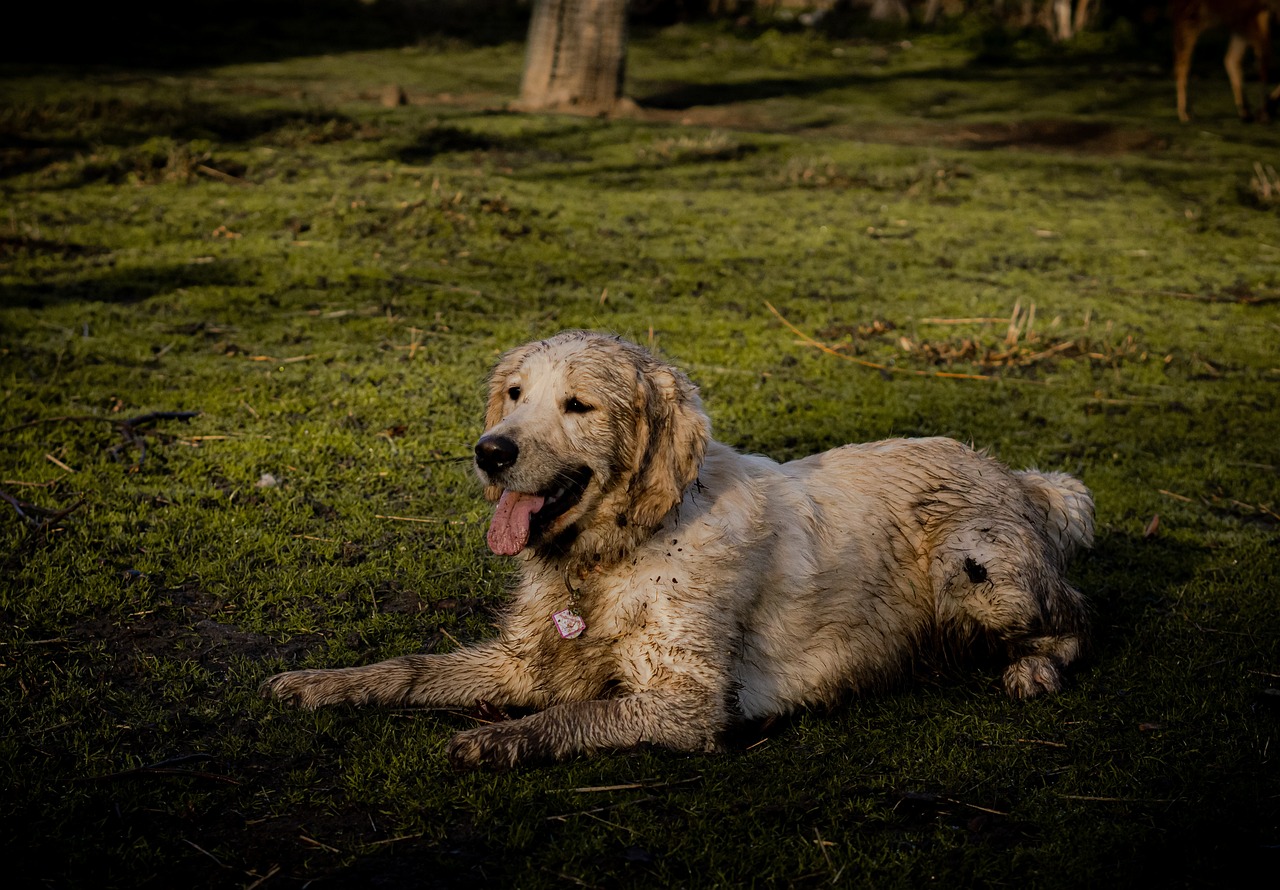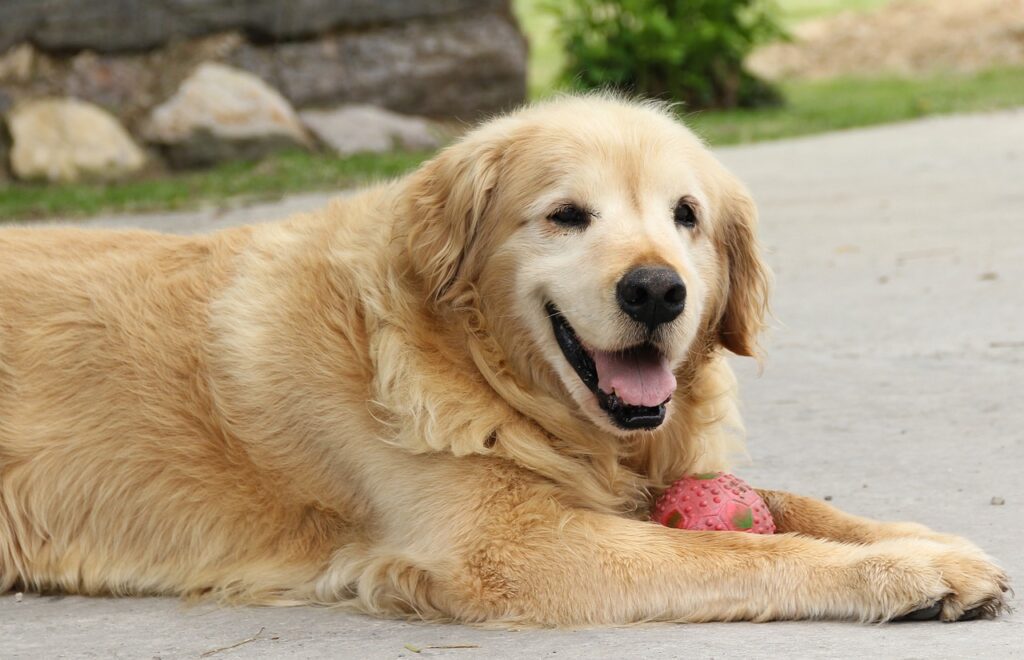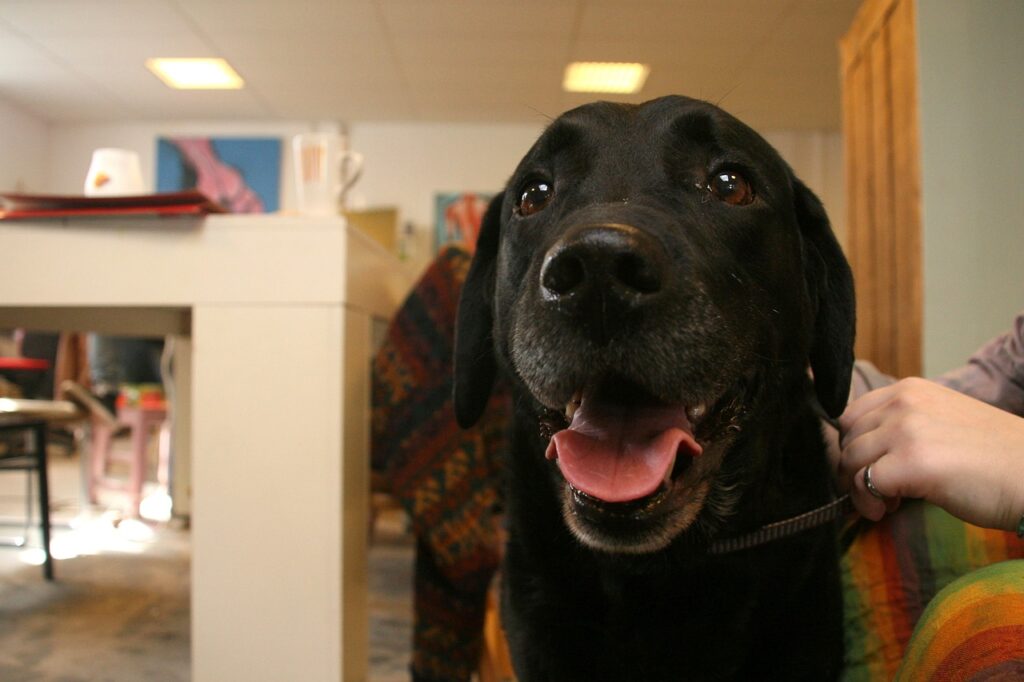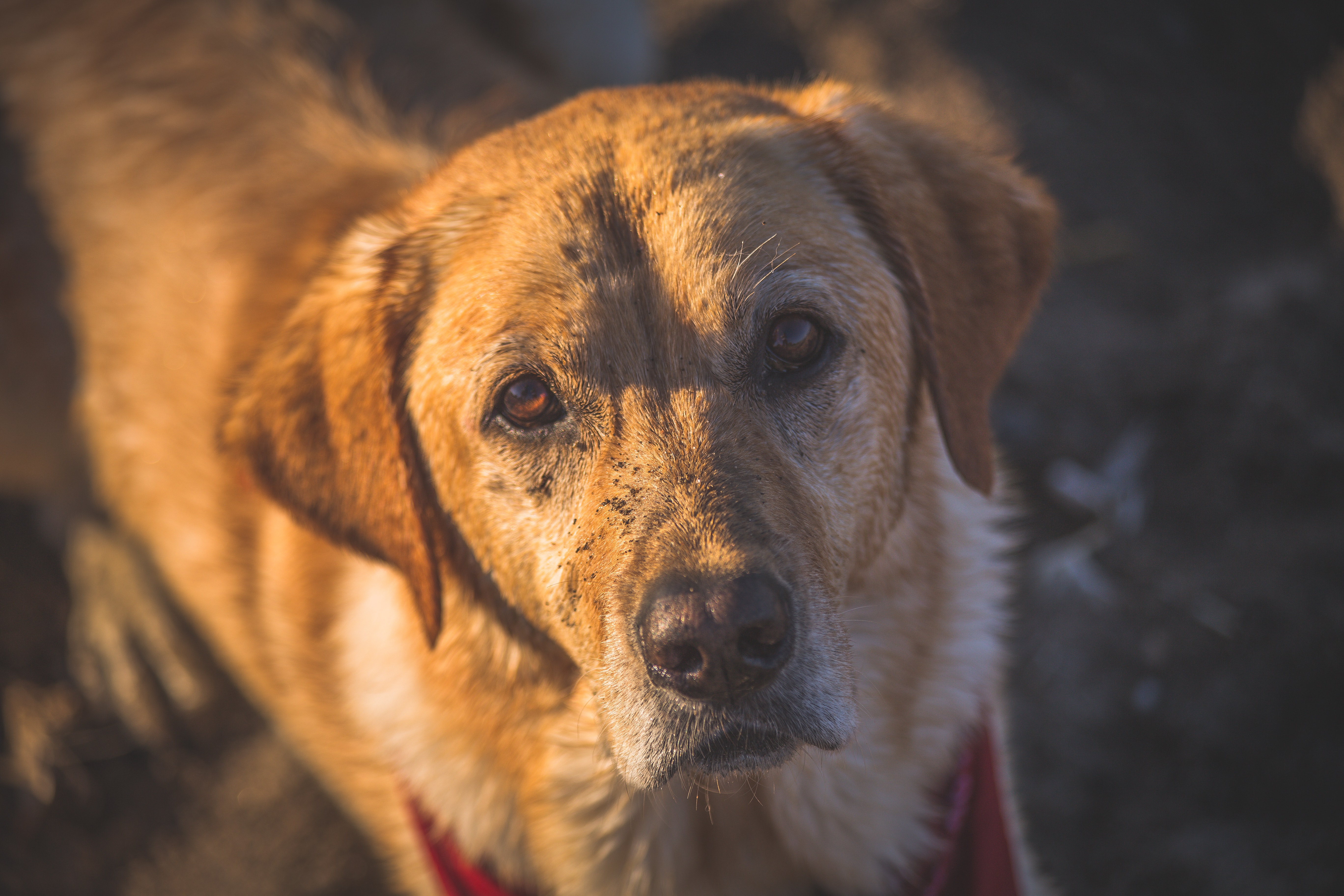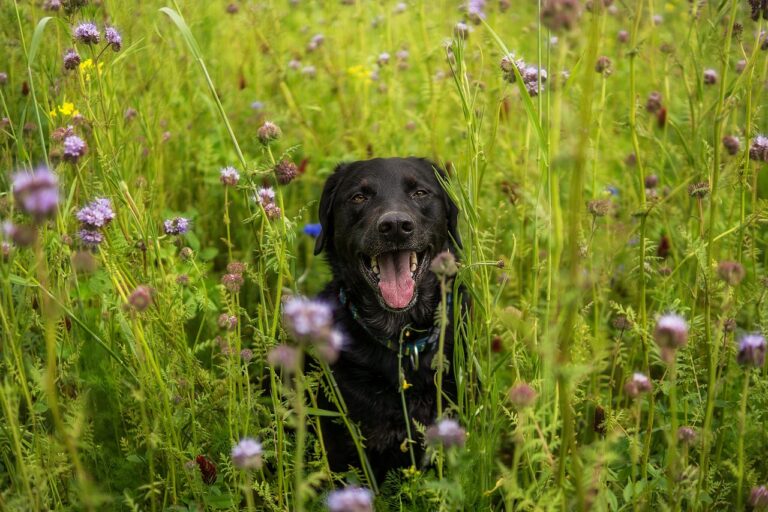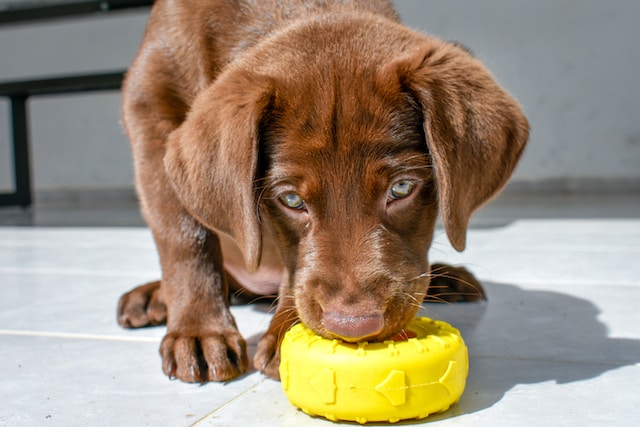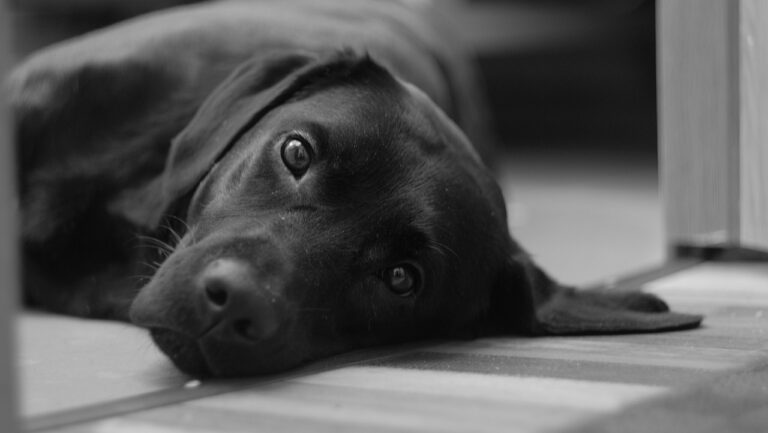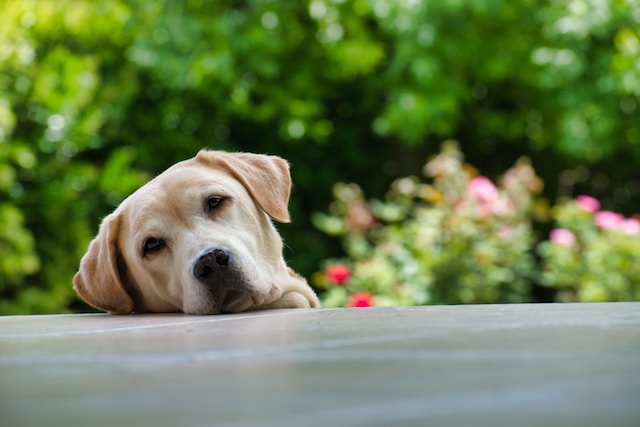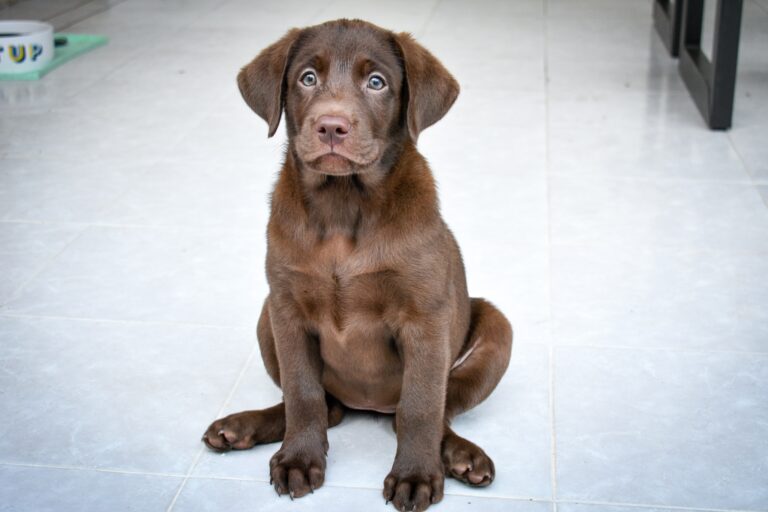Why Does My Labrador Stink: Sniffing Out The Truth
Can we talk about something a little bit… uncomfortable? Okay, don’t get offended, but have you noticed that your Labrador stinks? Have you ever asked, “Why does my Labrador stink?” I know, I know. It’s not a pleasant topic, but we’re dog lovers, right? We care about our furry best friends, and part of that means acknowledging when they might need a little extra hygiene attention.
So, drawing from my own experience as a fellow dog owner, let’s explore the question: Why does my Labrador stink? Trust me; there are lots of reasons and potential solutions that we’ll cover together.
Let’s get to the bottom of this, so we can enjoy our dogs’ cuddles without holding our breath!
Common Causes of Odor in Labradors
Every dog breed has its own unique odor, and Labradors are no exception. That said, if you notice a particularly strong odor coming from your pup, it might be time to explore the potential causes.
The most common reasons for excess body odors in dogs include:
🐕Skin Infections
skin infections can be a real pain – not just for humans but our lovable Labradors too! They’re actually one of the most common causes of unpleasant odors in our furry friends. Let’s break it down and discuss some of the usual suspects behind these stinky skin issues, shall we?
First up, allergies. Like people, dogs can have allergies too, which can sometimes lead to skin irritations and infections. The constant itching and scratching can create a breeding ground for bacteria, which in turn causes that funky smell. Keep an eye out for excessive scratching, redness, or inflammation on your Lab’s skin, as these could be signs of an allergic reaction.
Now, let’s chat about bacterial or fungal infections. These pesky little microbes can make themselves right at home on your Lab’s skin, causing all sorts of problems like hot spots, hair loss, and, you guessed it – odor. If you notice any unusual sores, scabs, or crusty patches on your dog’s skin, it might be time for a trip to the vet to get things checked out.
Lastly, seborrhea (oily skin) can also contribute to that stinky situation. Some Labrador Retrievers are prone to producing excess oil on their skin, leading to a greasy coat and a buildup of odor-causing bacteria. If your Lab’s coat feels oily to the touch or has a persistent musty smell, seborrhea could be the culprit.
🐕 Ear Infections
There are two main types of ear infections that can affect our Labs: bacterial and yeast infections. Bacterial infections are typically caused by various bacteria finding their way into your dog’s ears, while yeast infections are caused by an overgrowth of yeast (a type of fungus) in the ear canal. Both of these infections can create a stinky situation as they fester and cause discomfort for your pup.
Now, it’s essential to know the symptoms of ear infections to catch them early and seek treatment. Here are some telltale signs to look out for:
- Scratching or pawing at the ears
- Head shaking or tilting
- Redness, swelling, or discharge in the ear canal
- Foul-smelling odor coming from the ears
- Whining or yelping when the ears are touched
🐕 Dental Problems
Did you know that dental problems can significantly cause unpleasant odors in our furry friends? Yup, that’s right! A stinky mouth can lead to a stinky dog.
First up is periodontal disease. This sneaky condition is caused by the buildup of plaque and tartar, which can lead to gum inflammation. And, of course, it can also cause bad breath – aka, doggy halitosis. If your Lab’s breath smells like a garbage truck on a hot summer day, it might be time to look closer at their dental hygiene.
Next on our list: broken or infected teeth. Accidents happen, and sometimes our adventurous Labs can have a chipped or broken tooth. When this happens, bacteria can sneak into the tooth’s inner layers, leading to infection and a whole lot of stink. Keep an eye out for signs of pain or discomfort while your Lab is eating and any visible damage to their teeth.
🐕 Anal Gland Issues
What are anal glands? They are two little sacs located on each side of your dog’s anus. They excrete an odorous fluid, which is usually visible when your dog craps. However, sometimes these glands can become impacted or infected, leading to a rather unpleasant odor.
Impacted anal glands occur when the fluid isn’t expressed properly and becomes thickened, making it difficult for your dog to pass it naturally. Infected anal glands, on the other hand, happen when bacteria make their way into the sacs, causing inflammation and even an abscess.
So, how can we spot anal gland issues in our Labs? Keep an eye out for these signs:
- Scooting or dragging their rear end across the floor
- Excessive licking or biting at the anal area
- Swelling or redness around the anus
- A strong, fishy odor coming from your dog’s rear end
🐕 Environmental Factors
Sometimes, the source of your dog’s odor might be as simple as them just being a dog and doing dog things. For example, rolling in smelly substances. Oh, the joy our Labs seem to get from finding the most disgusting thing in the park and rolling around in it!
Whether it’s a dead animal, poop, or just some mysterious stinky stuff, our adventurous pups just can’t resist. Unfortunately, this means they bring that delightful fragrance home with them.
Other outdoor-related factors can also contribute to an unpleasant smell on your pup. For example, mud and dirt that gets stuck in their fur or even just from running around all day – let’s face it, our Labradors just love playing and having fun!
How To Prevent and Reduce Odor in Labradors
Now that we’ve explored the various causes of doggy odor let’s talk about some ways we can minimize it. Here are a few tips for keeping your Labradors smelling sweet:
✅ Regular Grooming and Bathing
A simple yet effective way to keep our lovable Labs smelling fresh and looking fabulous – regular grooming and bathing. It’s the secret sauce to preventing unwanted odors and maintaining their overall health.
The goal is to pick a gentle, dog-specific shampoo that’s pH-balanced and designed to work with your pup’s skin and coat. If your Lab has any special needs, like allergies or sensitive skin, don’t hesitate to ask your vet for a recommendation. And remember, human shampoos are a big no-no, as they can be too harsh and cause irritation.
Now, on to the grooming techniques! Brushing your Lab regularly is a game-changer when removing loose hair, dirt, and other gunk from their coat. This helps them stay fresh-smelling and reduces shedding between baths. Depending on your pup’s coat, you might need a slicker brush, bristle brush, or even a rubber curry brush. Aim to give them a good brushing session at least once a week or more frequently if they’re heavy shedders.
As for bathing, try to lather up your Lab every 4-6 weeks or whenever they get extra dirty from their adventures. Start by thoroughly wetting their coat, then gently massage in the shampoo using circular motions. Make sure to rinse well, as any leftover shampoo can lead to skin irritation. And, of course, shower them with praise (and maybe a treat) for being such a good sport during bath time!
✅ Proper Dental Hygiene
Don’t forget about your pup’s pearly whites! A good dental hygiene routine is one of the best ways to keep their mouth and breath smelling fresh. This can be as simple as brushing their teeth every day (yes, really!) with a dog-specific toothbrush and toothpaste – human toothpaste contains toxic substances to dogs.
In addition to brushing, you can give your pup dental treats and chews as part of their daily routine. The chewing action helps keep their teeth strong and clean, plus it’s a great way to keep them occupied and out of trouble!
✅ Ear Cleaning and Care
As we discussed earlier, ear infections and wax buildup can lead to a nasty smell and pain and discomfort for your pup. To keep their ears healthy and odor-free, give them a regular cleaning. You can do this with an ear cleaner specifically designed for dogs – never use cotton swabs or any other human products.
Your vet can also give you some tips on how to do ear cleanings at home and which type of cleaner is best for your pup. Additionally, if your Lab swims regularly or tends to get water in its ears, be sure to dry them out with a soft towel afterward or use an ear-drying solution recommended by your vet.
✅ Maintaining a Healthy Diet
A balanced diet is essential for keeping your pup in tip-top shape. It’s important to make sure they’re getting all the nutrients and vitamins they need, as this can help reduce any bad smells that may be coming from their poop or breath. Talk to your vet about a food plan tailored specifically for your Lab that suits their age, size, activity level, and any special health needs they may have.
Furthermore, try to keep an eye on their treats and snacks. Too many can lead to digestive issues like gas or loose stools, which can cause a nasty odor. And remember: never feed your pup anything that isn’t intended for dogs!
✅ Regular Vet Check-Ups
Last but not least, regular vet visits are necessary for any pup. They’ll be able to check your Lab’s overall health and ensure their teeth, ears, skin, and coat are all in good condition. This can help catch any potential issues before they become serious problems – or worse yet, smelly ones!
Home Remedies and Solutions for Dog Odor
Now that we’ve covered all the basics let’s take a look at some home remedies and solutions for tackling doggy odor.
🦮 DIY Dog Shampoo Recipes
Why not whip up your own dog shampoo using ingredients you probably already have at home? Here are a couple of simple and effective DIY recipes to try out:
Recipe 1: Oatmeal and baking soda shampoo
- 1 cup of ground oatmeal (use a food processor or blender to grind it)
- 1 cup of baking soda
- 4 cups of warm water
Mix the ingredients together, and you’ve got yourself a gentle, odor-fighting shampoo that’s perfect for your pup!
Recipe 2: Apple cider vinegar and dish soap shampoo
- ½ cup of apple cider vinegar
- ½ cup of gentle, unscented dish soap
- 1 cup of water
Combine the ingredients, and you’ve got a shampoo to help cut through grease and dirt while leaving your dog’s coat shiny and fresh-smelling.
🦮 Natural Odor Neutralizers
Sometimes, store-bought odor eliminators can be harsh and full of chemicals. Why not try these natural alternatives instead?
Baking soda:
- Sprinkle it on carpets, upholstery, or your dog’s bed.
- Let it sit for 15-20 minutes.
- Vacuum it up.
Baking soda is a fantastic natural odor absorber.
White vinegar:
Mix equal parts water and white vinegar in a spray bottle and use it as an all-purpose cleaner and odor neutralizer for surfaces and fabrics. Just be sure to test it on a small, inconspicuous area first to ensure it won’t damage the material.
🦮 Deodorizing Dog Beds and Living Spaces
Keeping your dog’s bed and living spaces fresh and clean reduces odors. Here are some tips to help you out:
- Wash your dog’s bed regularly: Check the manufacturer’s instructions for washing guidelines, and aim to launder your pup’s bedding every 1-2 weeks or as needed.
- Vacuum frequently: Regular vacuuming helps remove pet hair, dander, and dirt from carpets and upholstery, which can all contribute to odors.
- Air it out: Open windows to let fresh air circulate through your home, and consider using an air purifier to help remove pet-related allergens and odors.
Frequently Asked Questions
Q: What is the best shampoo for a smelly Labrador Retriever?
If you own a Labrador Retriever, you probably know that dog smells can be quite potent, no matter how much you love your furry friend. Finding the right shampoo to combat those odors can be tricky, though. Luckily, there are a few options out there that can work wonders for your smelly pup. Look for a shampoo that contains natural deodorizers such as baking soda, oatmeal, or tea tree oil. These ingredients neutralize odors, leaving your dog smelling fresh and clean. It’s also a good idea to opt for a shampoo specially formulated for dogs with sensitive skin to avoid any possible irritation.
Q: Is a bad diet a cause of doggy odor?
A bad diet can lead to some pretty unpleasant odors emanating from your pup, with some of the most common culprits being low-quality, highly-processed kibble or too many table scraps. Just like our own diets, what our dogs eat can greatly impact their overall health – and their smelliness!
Q: Do Labs smell worse than other dogs?
Some argue that Labs are the smelliest dogs, while others insist that their puppies have far worse body odor. So, what’s the truth? Well, it’s tough to say for sure. While there’s no denying that Labs can have a bit of a musky odor sometimes, it’s important to remember that every dog is unique. Factors like diet, hygiene, and general health can all impact how a dog smells. Ultimately, it’s up to each owner to decide whether or not they think their furry friend is particularly stinky.
Q: Can I use human shampoo in my Lab?
No, you should never use human shampoo or any other product designed for humans on your pup. Dog skin is different from ours and needs to be treated accordingly. Human shampoos may be too harsh for your dog’s delicate coat and could even cause irritation or other health issues. Stick with a specialized dog shampoo instead!
Q: Why is it my wet dog smells so bad?
It’s not uncommon for wet dogs to have a bit of an unpleasant smell. This is usually caused by bacteria and yeast that can build up on their skin and pungent compounds found in sweat and saliva.
Final Words
Our lovable Labradors can sometimes develop a bit of a stink, but it’s usually due to a few common factors. The good news is that we can keep our furry friends smelling fresh and clean by maintaining proper grooming habits, ensuring good dental hygiene, and using some home remedies. So, let’s not let a little odor get in the way of enjoying the incredible bond we share with our four-legged companions. After all, they bring so much joy and happiness into our lives and deserve the best care we can provide!

